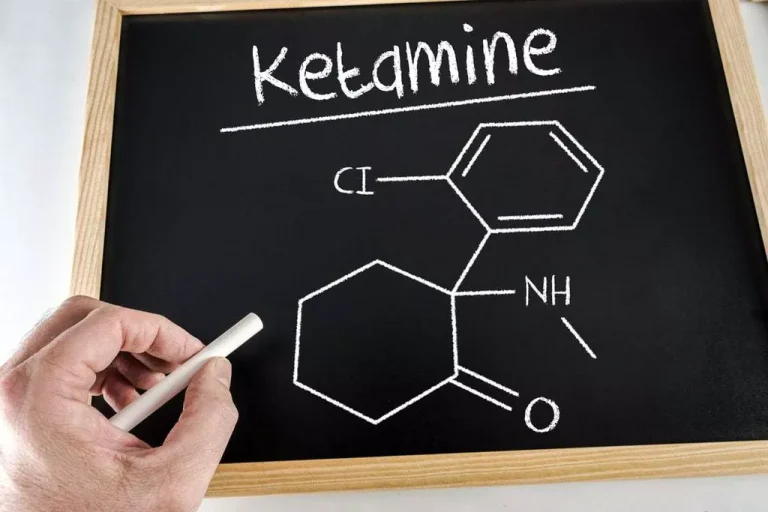Everything about Ketamine Addiction: Symptoms, Side Effects, and Therapy

Despite being not as popular as opioids, ketamine causes severe problems and addiction. If you want to battle the dependency, the first step towards a drug-free life is to gain knowledge and make a plan for future treatment. This guide will give useful insights and support you need to break free from ketamine addiction. Eco Sober Houses is your partner and mentor who gives insight and hope to overcome the complexities of recovery.
Understanding What is Ketamine?
Ketamine is a popular and strong anesthetic that is widely used in medicine to induce anesthesia during surgical procedures. Among doctors, this remedy is recognized for its unique properties, including its rapid onset and dissociative effects. It is invaluable in emergency situations and for surgeries where the use of other anesthetics are less effective.
The drug can be administered in various ways, depending on the medical prescription. Doctors use intravenous (IV) and intramuscular (IM) injections, also it is available in nasal spray form. However, in an illicit environment, ketamine is often found as a white powder that can be snorted, swallowed, or injected.

Take back control of your life and start on the road to recovery now.
Possible Ketamine Side Effects
Being a dissociative anesthetic, ketamine has increasingly found its popularity in the realm of recreational drug use. Whether you’re just started to take ketamine or are already struggling with its abuse, knowing the side effects is crucial for informed decision-making and seeking help if needed.
Immediate side effects
One of the most notable and sought-after effects of ketamine is its ability to induce vivid hallucinations and a profound sense of dissociation. While some people may find such experiences intriguing, they can also be disorienting and unsettling.
Ketamine use leads to difficulties with coordination and balance, making physical activities, such as driving, unsafe while under its influence.
Nausea and vomiting are common health problems. Frequently, they occur when drugs are taken orally. These symptoms can be unpleasant and disruptive to your daily life.
Long-term side effects
It’s important to note that while some people may use ketamine recreationally without experiencing severe side effects, others may be more susceptible to adverse reactions due to individual tolerance, dosage, and frequency of use. Furthermore, chemical purity and the presence of other substances in drugs can also influence the side effects you face.
- Prolonged and heavy ketamine abuse has been associated with memory and cognitive problems. Users may experience difficulties thinking clearly, making decisions, and maintaining focus.
- Chronic abuse will lead to severe bladder problems, a condition known as “ketamine-induced cystitis.” It causes pain, frequent urination, and other urinary tract issues.
- Ketamine misuse has been linked to an increased risk of mental health disorders, including depression, anxiety, and even persistent psychosis in some cases. These issues have a profound impact on your overall well-being and quality of life.
If you or someone you know is using ketamine and experiencing side effects, it’s crucial to seek professional help and consider the potential consequences of continued use.
Is Ketamine Addictive?
While ketamine is not as addictive as opioids or other stimulants, it can cause severe problems. Users can face psychological cravings and physical dependence using the drug for a long time.
Several factors contribute to ketamine addiction, including the frequency of use, the dosage consumed, an individual’s susceptibility, and personal circumstances such as stress or trauma.
Such addiction involves both psychological and physical components. Users may experience intense cravings, mood swings, and cognitive difficulties when trying to quit while also facing physical withdrawal symptoms.

Popular Street Names
Ketamine is known by a variety of street names, including “Special K,” “K cramps,” “Super Acid,” “Vitamin K,” “Ket,” and others. These monikers are often used in illicit drug culture to disguise its identity.
Overdose and Withdrawal Symptoms
Ketamine overdose results in severe symptoms, including hallucinations, confusion, breathing difficulties, high blood pressure, and even seizures. In extreme cases, it can be life-threatening.
When withdrawing from drug use, individuals may experience cravings, anxiety, depression, irritability, insomnia, and potentially more severe complications.
Professional medical care is essential if you are experiencing an overdose or withdrawal symptoms. A supportive and controlled environment helps manage all challenging situations effectively.
What Ketamine Addiction Treatment Exists?
Detoxification is the starting point of ketamine addiction treatment. It involves the supervised and gradual removal of ketamine from the body, allowing individuals to manage withdrawal symptoms in a safe and controlled environment. Treatment centers provide support and medications if necessary to ease the discomfort associated with ketamine withdrawal.
Start individual behavioral therapy
Such therapy plays a central role in overcoming ketamine addiction. It aids individuals to understand the underlying causes of their dependency and develop coping strategies to manage cravings and avoid relapse. The most effective therapies are the following:
- Cognitive-behavioral therapy helps individuals recognize and modify destructive thought patterns and behaviors associated with addiction.
- Motivational enhancement therapy focuses on enhancing an individual’s motivation to change and helping them set and achieve specific recovery goals.
Visit support groups and peer counseling
Peer support is invaluable in the recovery process. Consider joining support groups like 12-step programs or alternative recovery groups like SMART Recovery. These groups provide a sense of community, motivation, and the opportunity to share experiences and strategies to maintain sobriety.
- Narcotics Anonymous (NA) and Alcoholics Anonymous (AA) meetings offer a structured, step-based approach to recovery that has helped countless individuals stay clean.
- SMART Recovery is a proven alternative to traditional 12-step programs. This approach focuses on self-management and self-reliance in the recovery process.
Add medication therapy
Remedies are not commonly used for treating ketamine addiction as for other substances, but they can be beneficial in some cases. Medications like Naltrexone may reduce cravings and minimize the risk of relapse. It’s advisable to consult a healthcare professional to assess whether such treatment is suitable for your specific situation.

This can be a difficult journey, but you don’t have to go it alone. Let us be your guide and provide you the environment needed to regain control of your life and begin the path to recovery.
Aftercare and Ongoing Support
In fact, treatment doesn’t end with detox and therapy. Aftercare and ongoing support are essential to maintain sobriety. You have two basic options:
- Continue visiting therapy and counseling sessions as part of your aftercare plan to address any ongoing challenges and stay on track with your recovery goals.
- Move to a sober house and stay in a supportive, drug-free environment until you reintegrate into your previous social circle. It is the most wise solution to eliminate the risk of relapse and find new friends.
If you are seeking a unique and environmentally conscious approach to recovery, consider Eco Sober Houses. Our sober living facility combines the benefits of traditional sober living with a commitment to self-development. Our clients engage in conscious activities, promote wellness, and support each other in their recovery journeys. By choosing Eco Sober Houses, you not only embark on a path to recovery but also bring back your full life. Contact us today to get an anonymous consultation.




